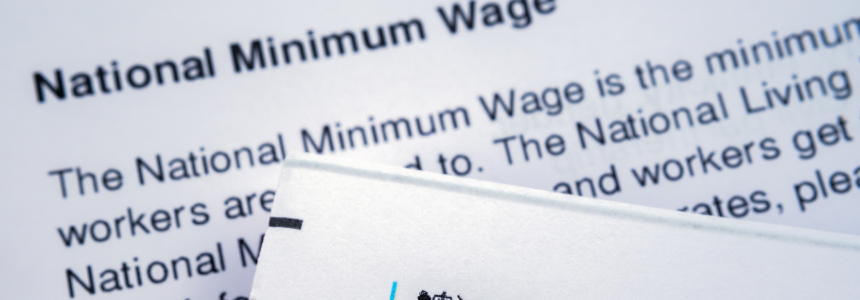
This article was first published by CWB www.cwb.online.co
CWB recently published an article by Nexa’s Steven Mather, a business law consultant solicitor and partner, advising on minimum wage legislation.
In June 2023, the Government “named and shamed” over 200 firms for failing to pay the minimum wage. The list comprised large and small companies and several retailers including M&S, W H Smith, Dune and Oasis, all of which were ordered to reimburse workers and pay fines which amounted to £7 million. As well as the monetary loss, the firms must grapple with major reputational damage, even though some of the breaches will have been entirely unintentional.
Following lengthy investigations, the Department for Business and Trade working with HMRC fined a total of 202 employers for not paying workers the correct minimum wage. Around 63,000 workers were left out of pocket by their employers, who had to repay around £5 million back to staff.
To analyse what went wrong, we need to start at the beginning: What is National Minimum Wage?
National Minimum Wage (NMW) was created in 1998 and was a leading policy for Tony Blair back in the 1997 general election campaign. There have been yearly reviews of the hourly rate figures since, and the introduction of the National Living Wage (NLW) for over 23 year olds, but basically it provides that all employees should receive a minimum pay per hour worked. As of April 2023, that pay is £10.42 for workers aged 23 and over. There is a sliding pay scale for age brackets under 23.
While 39% of employers investigated by HMRC were found to be failing to pay workers properly for their working time, another 39% were in breach because they were making deductions from workers’ wages.
For WH Smith, for instance, it suggested that the difference was a ‘misunderstanding’ on its part concerning uniform. They had asked staff to purchase and wear specific coloured trousers, skirts and shoes without reimbursing them for it. Without reimbursing them, the employees’ take-home pay for the hours worked was lower than minimum wage.
There are several ways that employers typically fall foul of national minimum wage legislation:
Believing that all workers are salaried.
Employers should identify the category of work being done – salaried, time/hourly rate work, piece work (where employees are paid for the number of tasks they perform, or per unit of work they complete), or unmeasured (where the work is not covered by the other categories) – as each has an impact on the NMW calculation. Don’t just assume that their ‘salary’ is sufficient.
Obviously, if someone is on a salary, that salary should be at least NMW. Equally, it is usually easy to ensure those on hourly rates are paid correctly too. But some factory workers might still be on piece work and that needs to comply with NMW.
Salary Sacrifice Schemes. HMRC considers post-sacrifice pay as what counts for NMW, so if someone is salary sacrificing for say childcare or cycle to work scheme, then the employer must look at their pay after deductions to ensure it still meets NMW.
This can be a tricky one for employers, particularly where workers are on basic pay that is better than NMW, as these schemes are often overlooked for NMW. They are seen as a benefit to all, particularly something like childcare vouchers. However, HMRC says that you should look at what their pay is post-sacrifice to ensure it complies with NMW.
Other deductions. Making deductions from wages for things that an employee has brought from you, e.g. for uniforms or tools or other employee benefits schemes, all reduce take-home pay and need to be considered for NMW purposes.
Again, it is what actual pay they have after deductions that counts for NMW. So, if like WHSmiths you require employees to buy certain clothes for uniform, then you need to ensure their take-home still meets NMW.
Apprenticeships pay. Employers must note it increases when they turn 19 and are in their second year, they don’t get the apprenticeship rate they get normal NMW.
This one should be relatively easy to spot, but 21% of the employers investigated by HMRC were underpaying apprentices. Their rates change with age and status, so it’s definitely one to keep your eye on if you do engage with apprentices.
One final tip is to keep good and accurate records for all your staff. Some payroll/HR software has this built-in but ensuring that you are keeping records of who gets what pay, and keeping track of things like deductions, is a good first step to avoid potential inadvertent breaches of NMW.
Steven Mather advises businesses on a wide range of legal issues affecting small and medium-sized business owners, from employees to contracts and company law to exiting the business.
